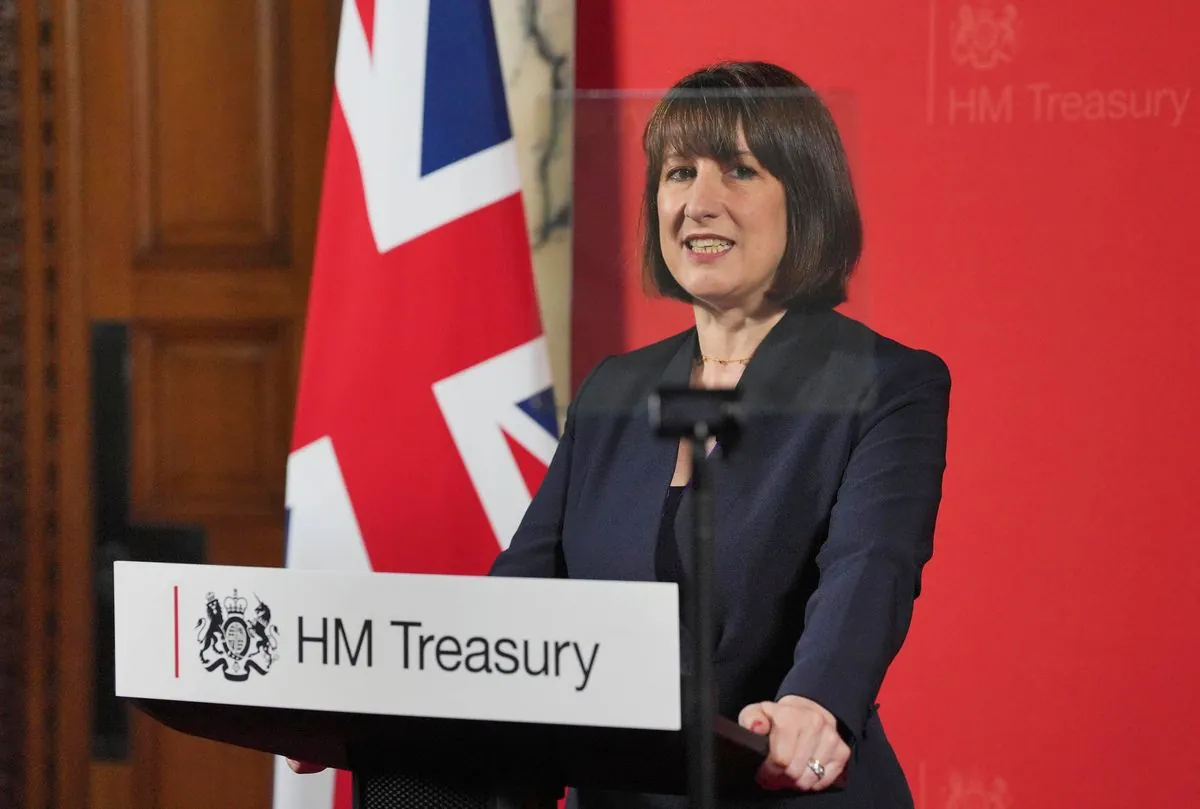UK Finance Minister Explores New Borrowing Options for Economic Growth
British Chancellor Rachel Reeves considers revising fiscal rules to increase borrowing capacity. Potential changes include altering debt measurements and asset valuation approaches, aiming to boost economic growth.

Rachel Reeves, the current British Chancellor of the Exchequer, is exploring various options to increase the government's borrowing capacity in an effort to stimulate economic growth. This move comes as the Labour administration, which assumed power in July 2024, seeks to address fiscal challenges while avoiding the market turmoil experienced during the brief tenure of former Prime Minister Liz Truss in 2022.
The primary fiscal rule, established by the previous Conservative government, mandates that debt as a share of Gross Domestic Product (GDP) must decrease between the fourth and fifth year of projections provided by the Office for Budget Responsibility (OBR). According to the most recent forecasts from March 2024, the government was on track to meet this target by a narrow margin of £9 billion.

Reeves has identified several potential strategies to create more fiscal headroom:
Altering debt measurement: Switching back to the older public sector net debt (PSND) measure could potentially free up around £16 billion, according to estimates by the Institute for Fiscal Studies (IFS).
Excluding Bank of England (BoE) losses: The government could choose to exclude losses incurred from the BoE's past asset purchases, which are estimated to cost £20-30 billion annually in the coming years.
Off-book accounting: Moving the National Wealth Fund and GB Energy off the government's books could provide an additional £15 billion in borrowing capacity.
Broader asset valuation: A more fundamental change would involve shifting fiscal rules to consider public sector net worth (PSNW), which takes into account the value of public assets alongside debt levels.
These proposed changes aim to provide the government with greater flexibility in its fiscal policy. However, they also present challenges, particularly in terms of justifying increased borrowing and accurately valuing public assets.
The consideration of these options reflects the ongoing debate about the most effective approach to managing public finances while promoting economic growth. As the UK continues to navigate post-pandemic recovery and global economic uncertainties, the decisions made by Reeves and her team at HM Treasury will have significant implications for the country's fiscal future.
"Moving the National Wealth Fund and GB Energy off the government's books could give Reeves another 15 billion pounds more headroom for borrowing."
As the Labour government seeks to implement its economic agenda, the balance between fiscal responsibility and growth-oriented policies remains a critical challenge. The outcome of these deliberations will likely shape the UK's economic landscape for years to come.


































